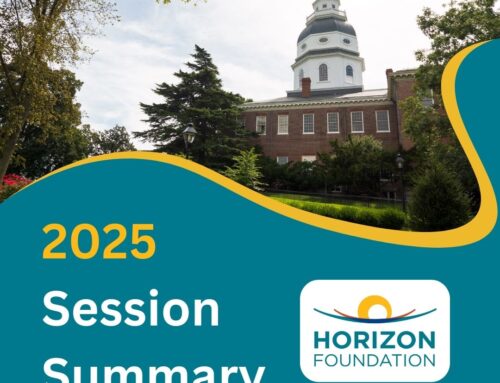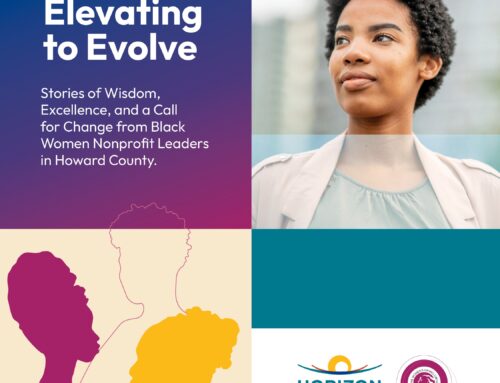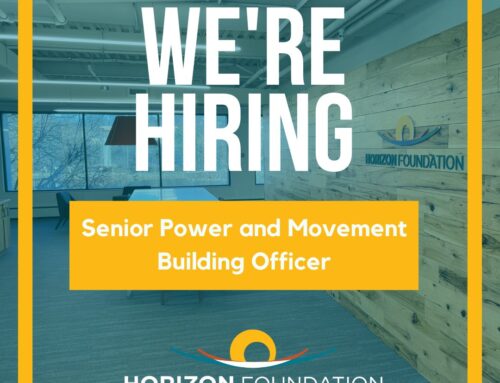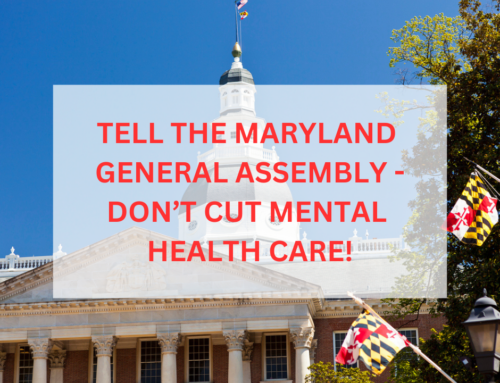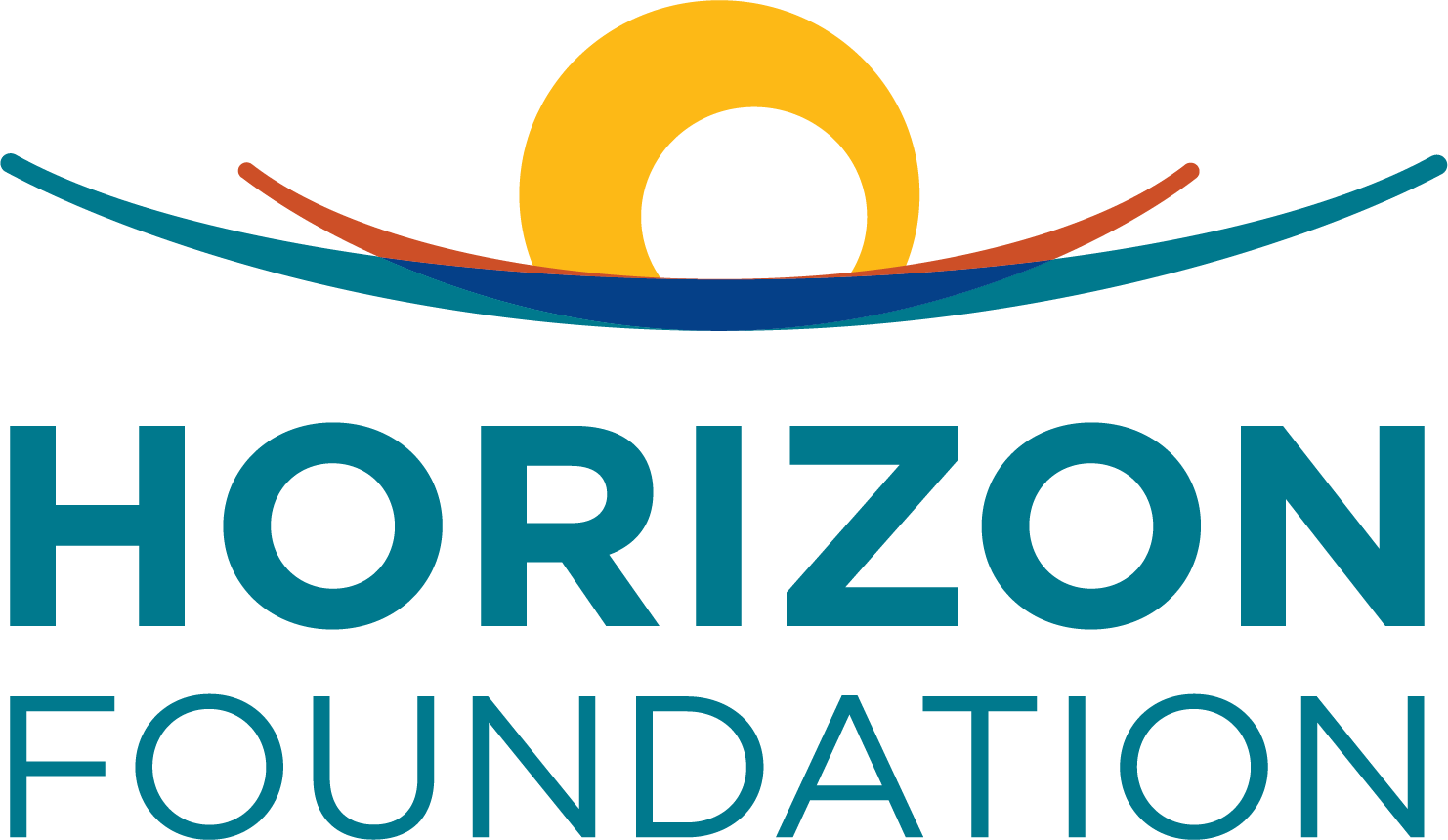Maternal and child health has been in the news a lot recently, for all the wrong reasons. The maternal mortality rate in the United States is rising, and racial disparities are widening over time. Nationally, data from the Centers for Disease Control and Prevention shows that Black women in the U.S. are more than three times as likely to die from pregnancy-related causes than their White counterparts. This problem is prevalent in Maryland as well – indicators of maternal and child health, including preterm birth and infant mortality, are poor, with stark racial disparities.
There are plenty of solutions that can make a difference, however. More work needs to be done making those solutions more available to more people in more places – and ensuring we center the voices of those who need to be heard.
“There is a growing appreciation for training doulas and ensuring folks have access to them, but doulas can’t do it all,” said Jennifer Holland, the policy and community engagement director at the Horizon Foundation. “There also needs to be family supports, midwives, OBs, mental health providers, social workers, all of it. We need to change our systems and institutions, strengthen our birth workforce, and center the needs of birthing people and their families to see the outcomes we want to see.”
To that end, the Horizon Foundation is a founding member of a new public-private partnership with other funders and the State of Maryland to advance maternal and child health. Currently, this Birth Equity Funders Collaborative is beginning a learning phase to understand the landscape in Maryland, considering several options for what the state and funders could work on together to achieve better health outcomes and improve the birthing experience for all people.
Jennifer got an opportunity to see what those possibilities could be at two recent national conferences – the March of Dimes Mom and Baby Action Network Summit and the Funders for Birth Justice and Equity Summit. In particular, she got to hear from similar funder collaboratives that have been launched in Illinois and New Jersey and are starting to see important results. She also heard from Illinois Lt. Governor, Juliana Stratton; Shruti Jayaraman from Chicago Beyond and Jeanine Logan, Founder and Lead Steward of the Chicago South Side Birth Center during a fireside chat where panelists elevated innovation, collaboration and activation. Jennifer learned about how public-private partnerships and policy can work together to improve maternal health outcomes, increase access to high quality care and support community-based providers. In the FY25 budget, Gov. Pritzker proposed $23M in funding paired with aligned philanthropic dollars to remove silos, provide grant opportunities for community-based providers, establish a child tax credit targeting low-income families, increase access to home visiting programs, pilot a diaper distribution project and increase funding for reproductive health facilities.
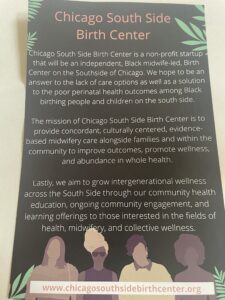 As an example of the power of these partnerships and collaborations, Jennifer and other conference attendees got to visit the Chicago South Side Birth Center, which is a health care facility for childbirth under the care of a midwife. The Chicago South Side Birth Center was established through grassroots community organizing and philanthropic partnerships. Founder and Lead Steward Jeanine Logan engaged with state lawmakers to remove barriers for free-standing birth centers and ensured the voices of community-based providers were at the decision-making table.
As an example of the power of these partnerships and collaborations, Jennifer and other conference attendees got to visit the Chicago South Side Birth Center, which is a health care facility for childbirth under the care of a midwife. The Chicago South Side Birth Center was established through grassroots community organizing and philanthropic partnerships. Founder and Lead Steward Jeanine Logan engaged with state lawmakers to remove barriers for free-standing birth centers and ensured the voices of community-based providers were at the decision-making table.
“It was inspiring to see how policies and public-private partnership driven by community can remove barriers and give birthing people more options,” said Jennifer. “And philanthropy is an important conduit to connect governments and private entities that are doing the work on the ground.”
Though the disparities and the numbers are stark, it is not enough to simply improve statistics or increase access to care. As described by the late Dr. Barbara Starfield of Johns Hopkins, the heart of this work should be to make person-centered care, not just patient-centered care, the standard.
By deepening our understanding of how we can better address the needs of all birthing people, ensuring they have housing, food, transportation, livable wages, clean water and air and respectful health care free of racism, we can begin to see them and their families within a larger context. In addition, it will allow us to provide the options they desire to see and ultimately drive better outcomes. The opportunity for new partnerships and community-based investments in this space is both ripe and necessary to make birth equity a reality in Maryland and across the country.
To our own Jennifer Holland, the mission is clear. “Achieving birth equity means that all birthing people are the authors of their own birthing stories. Everyone should have what they need to have the birth they want to have.”
—
For more resources on birth equity and current efforts to improve maternal and child health, visit the links below.

